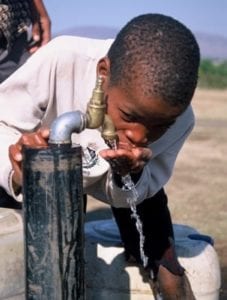The World Bank Board of Executive Directors recently approved US$228.5 million for a new push to boost water management in the Senegal River Basin and further improve the development prospects of Guinea, Mali, Mauritania and Senegal.
More than 4.5 million people living within the Senegal River Basin are expected to benefit directly from this multi-country project. Their countries rank among the world’s poorest with 42 to 53% of the population, mostly subsistence or smallholder farmers, living below the poverty line. Annual population growth is estimated at 2.7% and the population is expected to double every 25 years. During an historic trip last month to the Sahel by development leaders including the UN Secretary General Ban Ki-moon, President Jim Yong Kim of the World Bank Group pledged $1.5 billion in new financing to support major regional development priorities such as social safety nets to help families weather the worst effects of economic adversity and natural disasters, improve infrastructure and create opportunities in rural areas with more hydropower and other sources of clean energy to greatly expand irrigation and transform agriculture. This is the first project under this new initiative.The project is financed by IDA, the World Bank Group’s fund for the poorest countries.*
“Reducing the withering impact of drought will dramatically improve the livelihoods of millions of farmers, herders, and communities across The Sahel, and help to boost peace and development across their region,” says Makhtar Diop, World Bank Vice President for Africa. “If you want to help the people of The Sahel become more resilient to climate change, you have to fight drought first and foremost.” The Senegal River Basin, which covers 300,000 km², has significant hydropower and irrigation potential which could greatly improve water and food security and provide cheap renewable energy. This project aims to improve water availability for agriculture and food production, support aquaculture and fisheries management, promote hydropower through feasibility studies, reduce malaria and other neglected tropical diseases that sicken millions of people, and pilot innovative approaches to adapt to climate change.






